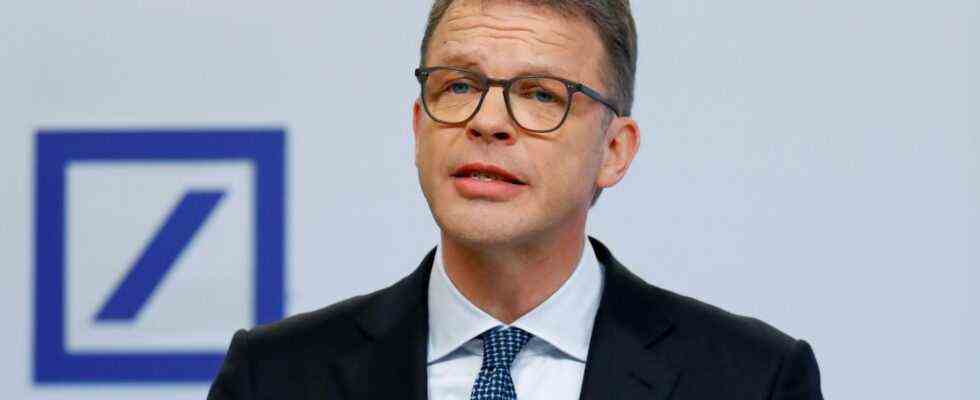Status: 06/28/2021 2:29 p.m.
Christian Sewing, head of Deutsche Bank and the new president of the banking association, calls for a uniform set of rules for banks and capital markets in the EU – and explains why this is important.
Like his predecessor Hans-Walter Peters, Christian Sewing, who formally takes over the management of the Association of German Banks (BdB) on July 1, calls on politicians to supplement the European monetary union with a banking union and uniform rules for the financial sector.
A common European capital market is, among other things, “the prerequisite for us to succeed in the transformation to a sustainable economy,” Sewing said at a bank conference. What is finally needed is “a reliable, uniform set of rules for 27 countries,” he warned. Instead, the monetary union still consists of 27 sub-markets – for example, insolvency, securities and consumer rules. “We need a banking and capital markets union that also includes a reliable deposit insurance fund.” Because the current fragmentation prevents uniform business, so the Deutsche Bank boss.
Remove bureaucratic hurdles
The core of the Capital Markets Union is to remove bureaucratic hurdles between the individual states of the European Union in order to give companies more opportunities to raise money. Consumers should also have more options for cross-border investments. The EU Commission’s plans for a capital markets union have been on the table since September 2015, but implementation is stalling.
Sewing also warned against too strict regulation in the European financial sector. “We are at a point in Europe where we go over the top,” said the future bank president. “We have to be careful that we stay competitive.” Banks in the eurozone were slowly but surely moving further and further away from other regions.
Heavy loads
Especially through the European resolution fund the financial institutions have to bear more and more burdens, criticized Sewing. In 2021, the institutes would have to raise more than ten billion euros in contributions, which is an increase of over 60 percent compared to 2016. “This is not because the risks in the European banking system have increased – but primarily because the looser ones Monetary policy continues to inflate the balance sheet, “explained Sewing. Since 2015, a uniform procedure has been in place in the EU for the resolution of illiquid credit institutions. A joint resolution fund (SRF) was set up for this purpose.
The European banks are also burdened by the negative interest rates introduced by the European Central Bank (ECB) for balances that are parked overnight at the central bank. The banking association estimates that 15 billion euros will be due this year alone. Added to this are the burdens for the implementation of the so-called Green Deal of the EU Commission, the cost of which is estimated at 350 billion euros. The planned expenditure should be financed by the banks.
US banks have become too dominant
Europe’s banks have fallen significantly behind since the beginning of the pandemic. Thus, among the 20 most valuable financial institutions in the world, measured by market value, there is only one institution from Europe, HSBC. A year earlier it was a good half. As a result, the European banks have not only lost their value, but also their room for maneuver. For the outgoing association president Peters this was a bitter realization: “Without the American banks, there will be no major merger in Germany. They also set the tone for IPOs. For me as a European, this is unbearable,” said Peters.

